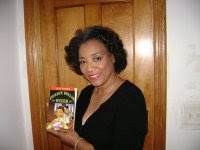Barack Obama's speech on race has caused many people in America to begin talking about the subject. Most black people talk about race daily. We function every day on whether any experiences we undergo have a racial tinge to them.
We can wonder, was the service at a restaurant just poor, or did we get poor service because we are black? We notice if the waitress treats others the same way we get treated. Then our minds can rest because we see the same poor service is evenly distributed.
I recently had a cop pull me over after I passed his parked car and looked at him. My mind immediately questioned whether he truly pulled me over for speeding or did he do so once he saw I was black-and then decide to say I was speeding? Especially in light of the fact that I didn't get a ticket.
On and on, in the everyday activities of a black person, we wonder in the back and forefront of our minds what race has to do with it.
The biggest question regarding race is how honest we want to be about it. Sadly, every word uttered in a conversation about race between the races in America is subject to the "racism" charge. Recently, during an interview on a radio station, Barack Obama referred to his grandmother as a "typical white person." That comment immediately caused a lot of flap.
His opponents and many on conservative talk radio jumped on his use of the word "typical." Yet if you think about Barack Obama's experience in growing up in this country, all of his relatives in this country during his entire formative years were white. His cousins, his aunts, his uncles, his nieces and nephews. All are white. And Barack, because of who he is within the family, was able to see things that no child who only visits or is the adopted relative ever truly does.
But I have to wonder why there was such outrage from some in white America over his use of the word "typical"? Who better than Obama, who has one foot in the white world and the other in the black world and has lived the experience, to truly be able to make an observation and label it as "typical."
Barack Obama also didn't have a single blood relative in this entire country who was black until his children were born. Yet white America because Barack Obama is half-black has completely given him over to black America. Why is that? How is it that Barack's black half has more power than his white half? How is it that someone who spent all his formative years with a white mother, white grandparent and around all their white friends can now be criticized for using the term "typical white person"?
Yet at the same time, he is expected to explain or defend black America-a black America he didn't grow up in and only came to be a part of once he was grown. Those same pundits who raged that Obama used the word "typical" don't seem to have a problem posing questions to Obama to explain a community he didn't grow up in. I saw one interview where Obama was asked to explain black patriotism, as if our patriotism is somehow different.
At the same time, I am not seeing anyone questioning why whites are so quick to vilify and deny someone who is one half of them?
Most whites, I suspect, are very uncomfortable with the race conversation because for many of them it will be the first time in their lives that they have to address their own racial being. I remember having a conversation with a co-worker years ago and because I felt comfortable with her, I asked her if she ever thinks about being white. The question kind of stunned her because, as she confessed to me, she didn't.
So I am curious and perhaps my white readers can respond. How often do you think about being white? If you live in a predominantly white area, do you think about how white it is? When you see your children's class picture and it's filled with other white children, do you wonder why there aren't any black children in the picture? Or do you just accept it as being part of "normalcy"?
If we are to honestly explore the racial dynamics of this country, we are all going to have to get thicker skin. Curious questions need to be asked and answered without fear that one party is "racist" while the other is the "victim."
Let the discussions begin!
You Finished The Book - Now What Did You Think
13 years ago
